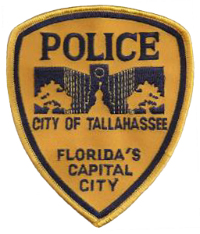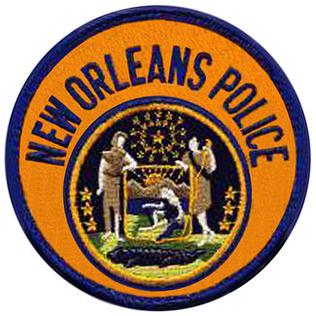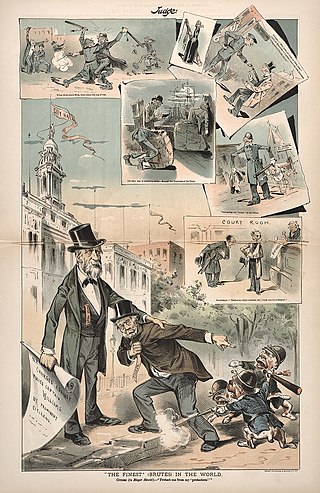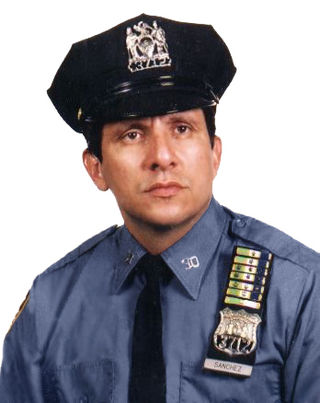
Internal affairs is a division of a law enforcement agency that investigates incidents and possible suspicions of criminal and professional misconduct attributed to members of the parent force. It is thus a mechanism of limited self-governance, "a police force policing itself". The names used by internal affairs divisions vary between agencies and jurisdictions; for example, they may be known as the internal investigations division, professional standards or responsibility, inspector or inspectorate general, internal review board, or similar.

The Philadelphia Police Department is the police agency responsible for law enforcement and investigations within the County and City of Philadelphia, Pennsylvania. The PPD is one of the oldest municipal police agencies, fourth-largest police force and sixth-largest non-federal law enforcement agency in the United States. Since records were first kept in 1828, at least 289 PPD officers have died in the line of duty.

The Rampart scandal was a police corruption scandal which unfolded in Los Angeles, California, United States, during the late 1990s and early 2000s. The scandal concerned widespread criminal activity within the Community Resources Against Street Hoodlums (CRASH) anti-gang unit of the Los Angeles Police Department's Rampart Division. More than 70 police officers were initially implicated in various forms of misconduct, including unprovoked shootings and beatings, planting of false evidence, stealing and dealing narcotics, bank robbery, perjury and cover-ups thereof.

The Independent Police Complaints Commission (IPCC) was a non-departmental public body in England and Wales responsible for overseeing the system for handling complaints made against police forces in England and Wales.

The Tallahassee Police Department (TPD) is the municipal police for that provides public safety services for the city of Tallahassee, Florida, United States. Within the department, there are twelve primary divisions: The Chief of Police, Internal Affairs, Development Bureau, Investigations, Traffic Enforcement, Crime Analysis Unit, Public Information Office, Towing Administration, Property & Evidence, Operations Bureau, Technology, Records, and Special Operations.
Police misconduct is inappropriate conduct and illegal actions taken by police officers in connection with their official duties. Types of misconduct include among others: sexual offences, coerced false confession, intimidation, false arrest, false imprisonment, falsification of evidence, spoliation of evidence, police perjury, witness tampering, police brutality, police corruption, racial profiling, unwarranted surveillance, unwarranted searches, and unwarranted seizure of property.
Fajitagate was a series of legal and political incidents in San Francisco that began with a street fight outside a neighborhood bar between three off-duty San Francisco Police officers and two other local residents over a bag of fajitas, leading to numerous civil and criminal complaints, police misconduct allegations and eventually, the resignation of the city's Chief of Police and Deputy Chief of Police.

The Columbus Division of Police (CPD) is the primary law enforcement agency for the city of Columbus, Ohio, in the United States. It is the largest police department in Ohio, and among the twenty-five largest in the United States. It is composed of twenty precincts and numerous other investigative and support units. Chief Elaine Bryant assumed leadership of the Division in 2021. Special units of the Columbus Division of Police include a Helicopter Unit, Canine Unit, Mounted Unit, Community Response Teams, Marine Park Unit, and Special Weapons and Tactics Team (SWAT).

The NYC Civilian Complaint Review Board (CCRB) is a civilian oversight agency with jurisdiction over the New York City Police Department (NYPD), the largest police force in the United States. A board of the Government of New York City, the CCRB is tasked with investigating, mediating and prosecuting complaints of misconduct on the part of the NYPD. Its regulations are compiled in Title 38-A of the New York City Rules.

The New Orleans Police Department (NOPD) has primary responsibility for law enforcement in New Orleans, Louisiana, United States. The department's jurisdiction covers all of Orleans Parish, while the city itself is divided into eight police districts.

The Metropolitan Police Department – City of St. Louis is the primary law enforcement agency for the U.S. city of St. Louis.
Jamie Graham, O.O.M. is a former chief for the Victoria Police Department. He previously served as the chief constable of Vancouver, British Columbia from August 22, 2002 to August 13, 2007. A former Royal Canadian Mounted Police officer, Graham's five-year contract with the Vancouver Police Department was not renewed. His time as chief there ended on August 22, 2007.

The Prince George's County Police Department (PGPD) is the primary law enforcement agency in Prince George's County, Maryland in the United States, servicing a population of over 900,000 residents and visitors within 498 square miles (1,290 km2) of jurisdiction.

Throughout the history of the New York City Police Department, numerous instances of corruption, misconduct, and other allegations of such, have occurred. Over 12,000 cases have resulted in lawsuit settlements totaling over $400 million during a five-year period ending in 2014. In 2019, misconduct lawsuits cost the taxpayer $68,688,423, a 76 percent increase over the previous year, including about $10 million paid out to two exonerated individuals who had been falsely convicted and imprisoned.

The Independent Police Complaints Council (IPCC) is a civilian body of the Government of Hong Kong, part of the two-tier system in which the Hong Kong Police Force investigates complaints made by the public against its members and the IPCC monitors those investigations.
The Columbia Police Department (CPD) is the principal law enforcement agency serving the city of Columbia, Missouri in the United States. It protects a metropolitan population of nearly 127,000 with 187 sworn police officers.

Joe Sánchez , is a former New York City police officer and author who published books about corruption within the New York City Police Department (NYPD).
The Bloomfield Police Department (BPD) is the primary law enforcement agency in Bloomfield, New Jersey. It consists of 122 police officers.
The Independent Office for Police Conduct (IOPC) is a non-departmental public body in England and Wales which, since 8 January 2018, is responsible for overseeing the system for handling complaints made against police forces in England and Wales. Most allegations of police misconduct are investigated by police forces' own professional standards departments. However the IOPC does conduct independent investigations of serious allegations of misconduct or criminal offences by police officers and other law enforcement officers. 'Mandatory' referrals are usually made to the IOPC should a person die or sustain serious injuries following police contact. Additionally, a force's professional standards department may also make a 'voluntary' referral – in which a force will ask the IOPC to consider if they wish to investigate independently, supervise a force professional standards investigation, or decline and refer the investigation back to the force to investigate without any IOPC input. The office received over 4300 referrals from police forces and completed about 700 investigations in the 2019/20 year.
The Royal Newfoundland Constabulary sexual abuse scandal occurred in 2014 and concerned allegations of assault by Constable Doug Snelgrove.















